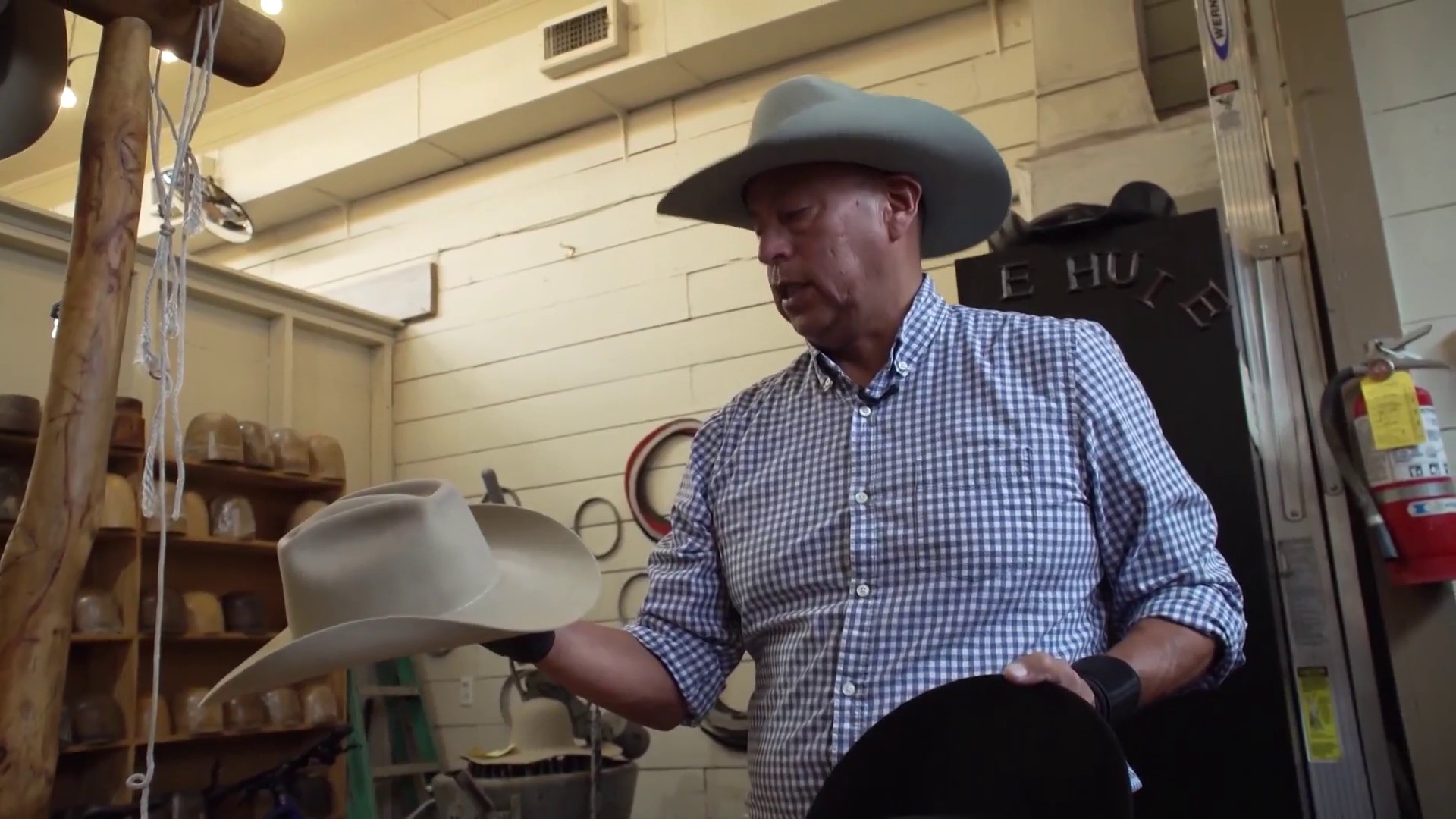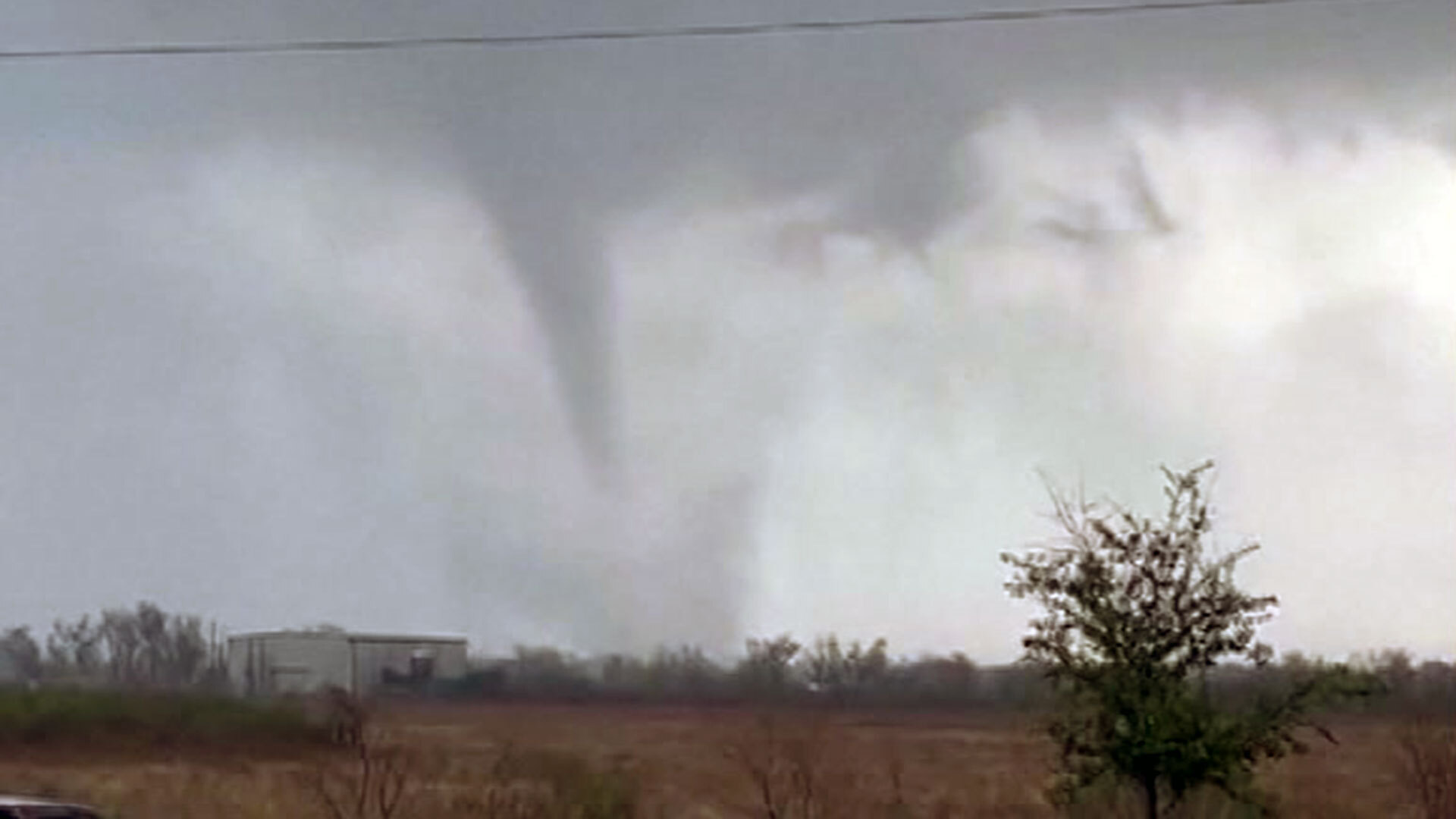After days out of sight following the Capitol siege, President Donald Trump travels to Texas to trumpet one of the pillars of his presidency: his campaign against illegal immigration.
President Donald Trump on Tuesday took no responsibility for his part in fomenting a violent insurrection at the U.S. Capitol last week, despite his comments encouraging supporters to march on the Capitol and praise for them while they were still carrying out the assault.
"People thought that what I said was totally appropriate," Trump said.
He made the comments during his first appearance in public since the Capitol siege, which came as lawmakers were tallying Electoral College votes affirming President-elect Joe Biden's victory. Trump arrived in Texas on Tuesday to trumpet his campaign against illegal immigration in an attempt to burnish his legacy with eight days remaining in his term, as lawmakers in Congress appeared set to impeach him this week for the second time.
The rampage through the halls of Congress sent lawmakers of both parties and Trump's own vice president into hiding, as crowds called for Mike Pence's lynching for his role overseeing the vote count. The scene also undermined the hallmark of the republic -- the peaceful transition of power. At least five people died, including one Capitol Police officer.
Get top local stories in DFW delivered to you every morning. >Sign up for NBC DFW's News Headlines newsletter.
In the days leading up to the Jan. 6 certification vote, Trump encouraged his supporters to descend on Washington, D.C., promising a "wild" rally in support of his baseless claims of election fraud, despite his own administration's findings to the contrary. Speaking for more than an hour to a crowd on the Ellipse, Trump encouraged supporters to "fight like hell" and suggested that Republican lawmakers would need "more courage not to step up" and overturn the will of voters to grant him another term in office. He also suggested he would join them in marching on the Capitol.
As Trump wrapped up, thousands of his supporters were already heading to the Capitol, where lawmakers convened to count the electoral votes. As rioters were still in the building and lawmakers sheltered in secure locations, Trump, at the urging of aides who were shocked by the violence, released a video seemingly excusing the events, saying of the rioters: "We love you. You're very special. Go home."
Texas News
News from around the state of Texas.
Speaking Tuesday, Trump said the "real problem" was not his rhetoric, but the rhetoric that Democrats used to describe Black Lives Matter protests and violence in Seattle and Portland this summer,
"Everybody to the `t' thought it was totally appropriate," Trump said of his own comments.
Trump headed to Alamo, Texas, a city in the Rio Grande Valley near the U.S.-Mexican border -- the site of the 450th mile of the border wall his administration is building.
Alamo is named after the San Antonio mission where a small group of Texan independence-fighters fended off Mexican forces during a 13-day siege. Most of them died, but the mission became a symbol of resistance for Texans, who eventually defeated the Mexican army.
Trump's visit -- no doubt a symbol of the president's defiance -- comes as he spends the final days of his presidency isolated, aggrieved and staring down the prospect of a second impeachment.
Aides have been urging the president to spend his remaining days in office highlighting what they see as the chief accomplishments of his presidency: a massive tax cut, his efforts to roll back federal regulations and the transformation of federal courts with the appointment of conservative judges. But Trump has repeatedly resisted their efforts as he has remained ensconced in the White House, behind closed doors, consumed by baseless allegations of voter fraud and conspiracies.
Trump is expected to deliver remarks highlighting his administration's efforts to curb illegal immigration and the progress made on his signature 2016 campaign promise: building a "big, beautiful wall" across the length of the southern border -- an imposing structure made of concrete and reinforced steel. Over time, Trump demanded modifications that have been largely rejected: He wanted it painted black to burn the hands of those who touched it; he wanted it adorned with deadly spikes; he even wanted to surround it with an alligator-filled moat.
In the end, his administration has overseen the construction of roughly 450 miles of border wall construction -- likely reaching 475 miles by Inauguration Day. The vast majority of that wall replaces smaller barriers that had already existed, though the new wall is considerably more difficult to bypass.
A few dozen Trump supporters rallied hours before his visit to the Rio Grande Valley near the Harlingen, Texas, airport, where he was scheduled to land. They planned to stage a caravan of vehicles flying flags that support the president and far-right causes like the QAnon conspiracy theory.
Four people interviewed Tuesday morning all said they believed antifa and Black Lives Matter activists staged the Capitol riot, though federal authorities have uniformly identified far-right activists as responsible. Two people said they still believed Trump would be inaugurated for a second term next week, even after Congress certified Biden's victory and courts at every level have dismissed Trump's baseless claims of widespread voter fraud.
"If he is able to see us, we hope that it would encourage him and lift up his spirits," said Sharon Katie Taylor, a retiree from Iowa. "The people voted him in, and that will be proven."
Over the last four years, Trump and his administration have taken extreme -- and often unlawful -- action to try to curb both illegal and legal immigration. Their efforts were aided in his final year by the coronavirus pandemic, which ground international travel to a halt. But the number of people stopped trying to cross the southern border illegally has been creeping back up in recent months. Figures from December show nearly 74,000 encounters at the southwest border, up 3% from November and up 81% from a year earlier.
Mark Morgan, acting commissioner of U.S. Customs and Border Protection, has warned the next administration that easing Trump administration policies, including a halt to wall construction, would lead to a surge of people seeking to cross the border, creating "an unmitigated crisis in the first few weeks."
Biden has said he'd halt construction of the border wall and take executive action where possible to reverse some of Trump's restrictions on legal immigration and asylum seekers. But Biden and his aides have acknowledged the possibility of a new crisis at the border if they act too quickly, and Biden has said it could take six months for his administration to secure funding and put in place the necessary infrastructure to loosen Trump-era restrictions.
After the Capitol violence, groups including the Southern Poverty Law Center urged Trump to call off his visit.
"The violence Trump incited last week, and the violence his anti-immigrant policies cause stem from the alarming mainstreaming of white nationalist ideology that our country must reckon with and fight to uproot," said Efren Olivares, deputy legal director of the center's Immigrant Justice Project. "The president's planned trip to the border will only further the harm and beget more violence."
Associated Press writers Nooman Merchant in Harlingen, Texas; Ben Fox and Alexandra Jaffe in Washington; and Elliot Spagat in San Diego contributed to this report.



